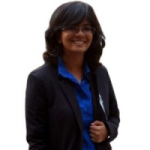Course Information
- 2023-24
- CAP213
- 5-Year B.A., LL.B. (Hons.), 3-Year LL.B. (Hons.), LL.M., Master's Programme in Public Policy
- III, IV, V
- Nov 2023
- Elective Course
COURSE DESCRIPTION
The attention being paid to language in public discourse is increasing as seen by the publishing of the Supreme Court Handbook to Combat Gender Stereotypes, the rise of political correctness, the discussion of medium of education in the NEP, and other political events. These political events will enframe this course. It is crucial to understand how language operates in order to understand its political implications.
This course will focus on the nature of language. Is language a reflective surface to describe objective reality? Is language a structural formation? How would the theory of language produce differing kinds of politics around it? What is the nature of language and how is it implicated in power? Studying multiple philosophical and linguistic theories of language will allow us to understand how the political is reflected in and constructed by language.
The materials in this course go over various theories on language from classical Greek thought, to the pre-modern until structuralism. The course aims to cover breadth across time, and the foundational theories of language will allow a better understanding of language and power in the later weeks on post-structuralism and post-colonialism. Language shifts from being mimetic (a reflection of reality), to scientific, and philological before it becomes structural.
The course will expect a basic reading level. Given that the texts are difficult, there will be a partial lecture for every text, before opening it up to discussions.
The various modules are spread over temporal divisions of history, allowing an overall understanding of the nature of language. The course aims to produce a linear map of the theory of language across time to understand its changing political implications, as well as literary politics (or politics as constituted by literature). Such linearity can be critiqued at the end of the course.


